By Paul Homewood
Climate change–ravaged? Trust the BBC to make it sound melodramatic.
It was described in 2016 as the first mammalian extinction caused by human-induced climate change.
Now the eradication of the Bramble Cay melomys has been officially recognised by Australia, its only known home.
The rodent lived solely on a tiny sand island in the Torres Strait, near the coast of Papua New Guinea (PNG). The species has not been seen since 2009.
The Australian government's decision to list the species as extinct comes after the Queensland state government made an identical determination in 2016.
A state government report said it was almost certainly caused by "ocean inundation of the low-lying cay, very likely on multiple occasions, during the last decade, causing dramatic habitat loss and perhaps also direct mortality of individuals".
https://www.bbc.co.uk/news/world-australia-47300992
In fact, the demise of the little rat is far from as straightforward as the BBC would like you to believe.
The Conversation published a considered analysis back in 2013:
The Bramble Cay Melomys (Melomys rubicola) has one of the most unusual and precarious distributions of all Australian mammals. The melomys is restricted to an unstable 4-5 hectare coral cay in the eastern Torres Strait, off the tip of northern Australia….
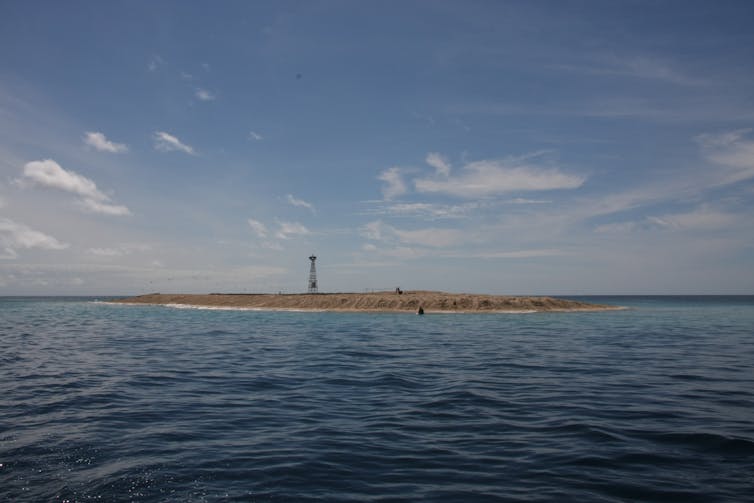
There's really not much room on Bramble Cay, not even for a mouse.
Status
There are accounts of visits to Bramble Cay in the mid 1800s that describe the Bramble Cay Melomys as abundant.
In 1998, 42 individuals were captured in live traps over six nights. The population was estimated to be around 98 individuals.
Repeat surveys in 2002 and 2004 recorded 10 and 12 individuals respectively, and annual visits to the cay by turtle researchers since 2007 have failed to detect any presence of the species at all. The small, apparently declining population and limited distribution place the Bramble Cay Melomys at high risk of extinction.
Threats
The small population size means genetic drift, disease and introduced species all pose a threat to the species.
Habitat loss via erosion of the cay is the single most important threat, particularly given that sea levels are predicted to rise thanks to climate change. Bramble Cay is by no means stable. Between 1958 and 1987, the cay decreased in size; but in 2011 it had returned to a size comparable to 1958.
While the size of the cay varies, the vegetation on it is shrinking, and this might be the main cause of the melomys' decline.
Bramble Cay also serves as a rookery to marine turtles and seabirds. The vegetation is disturbed by nesting seabirds throughout the year and by turtles between October and March. In our December 2011 survey the area disturbed by turtles was quite extensive, and many turtles were nesting towards the centre of the cay. Photos show a substantial reduction in the cover of vegetation between 2009 and 2011.
Bramble Cay in 2009 (left) and 2011 (right). The vegetation has noticeably shrunk, possibly thanks to the activities of turtles and seabirds. Karen Evans & Natalie Waller
https://theconversation.com/australian-endangered-species-bramble-cay-melomys-18036
Bramble Cay is only ten feet high, and consequently is naturally vulnerable to storm surges and king tides. However a rise of 3 inches since the 1970s is hardly likely to have made the slightest difference to the rat's survival.
Furthermore, longer term records from Sydney indicate that sea level rise peaked in the 1950s, which questions how much of the rise during the 20thC was natural, rather than man-made.
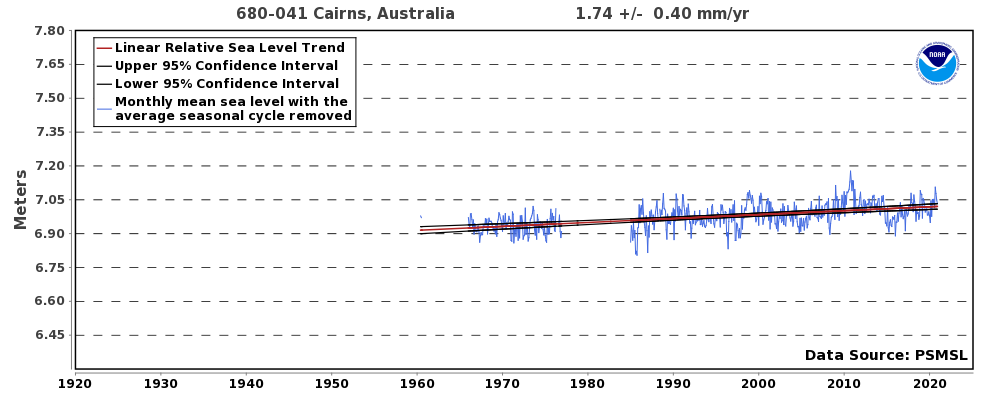
https://tidesandcurrents.noaa.gov/sltrends/sltrends_station.shtml?id=680-041
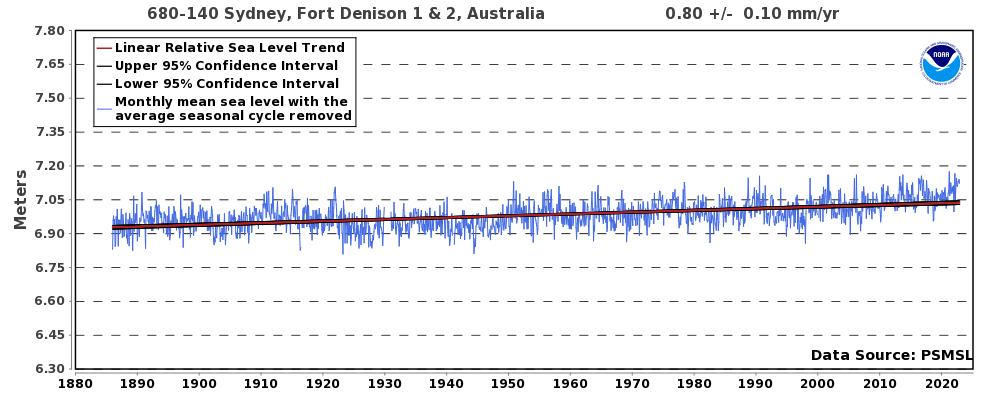
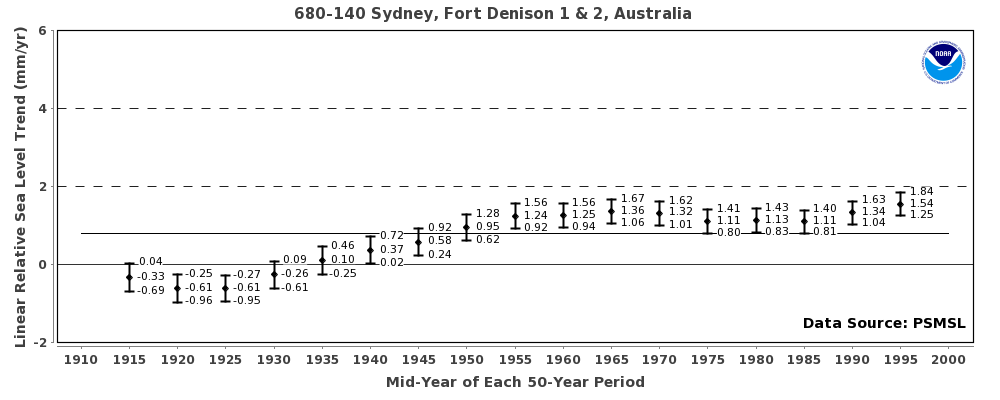
https://tidesandcurrents.noaa.gov/sltrends/sltrends_station.shtml?id=680-140
The simple fact is that such a small population in such a small and unstable habitat is always at risk of extinction for a variety of reasons.
In this instance, it seems pretty clear that the major factor was the loss of vegetation attributable to the activities of turtles and seabirds.
But that does not make very good headlines, does it?
from Climate Change Skeptic Blogs via hj on Inoreader https://ift.tt/2SnVrij

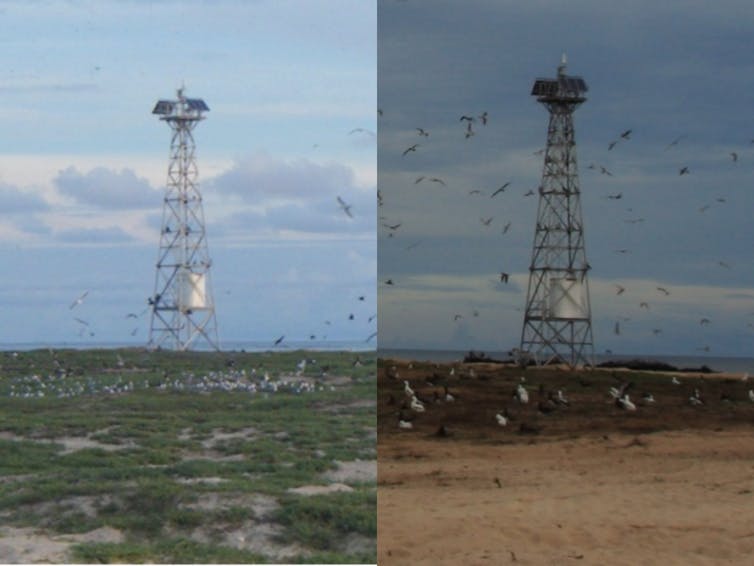
No comments:
Post a Comment